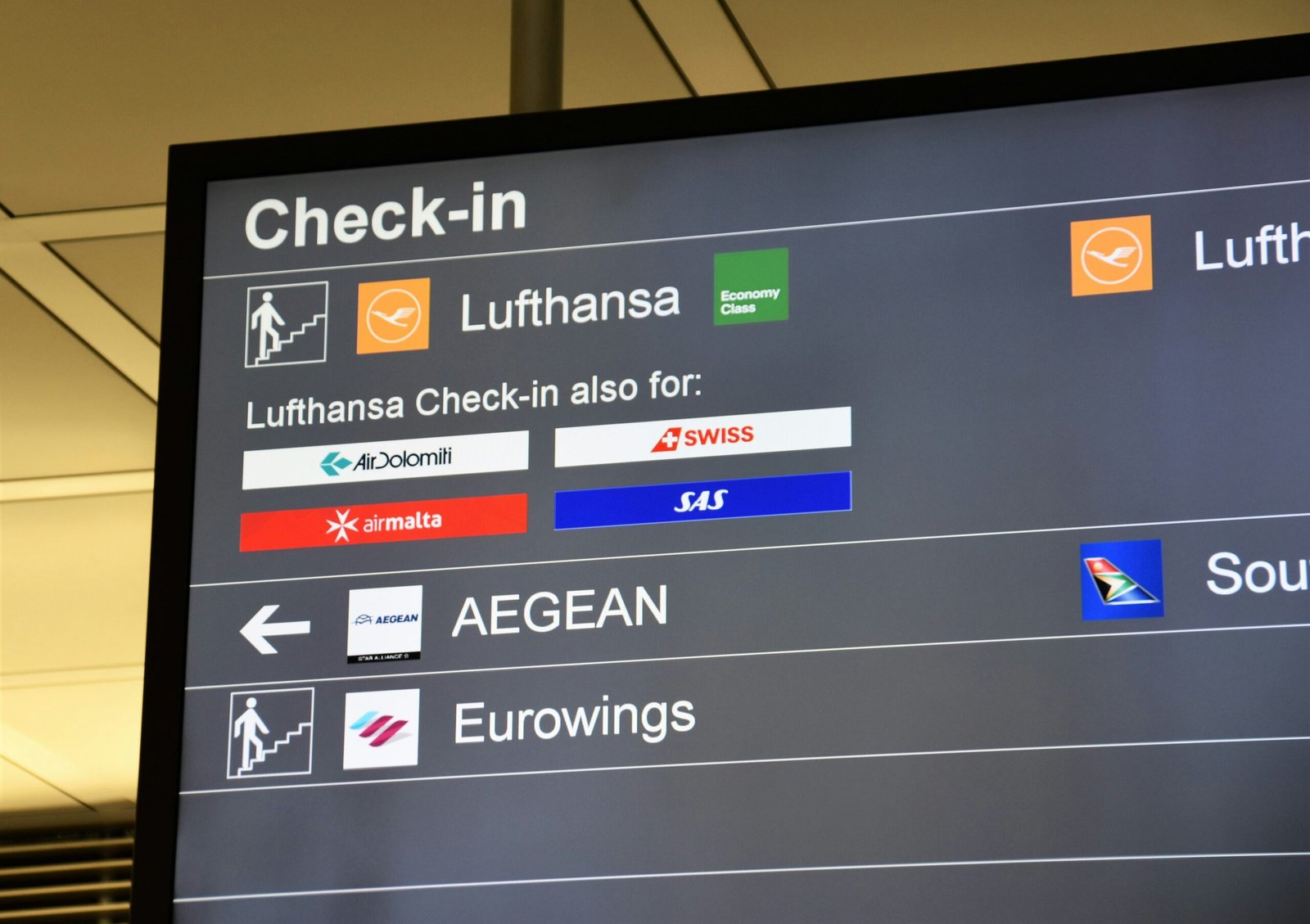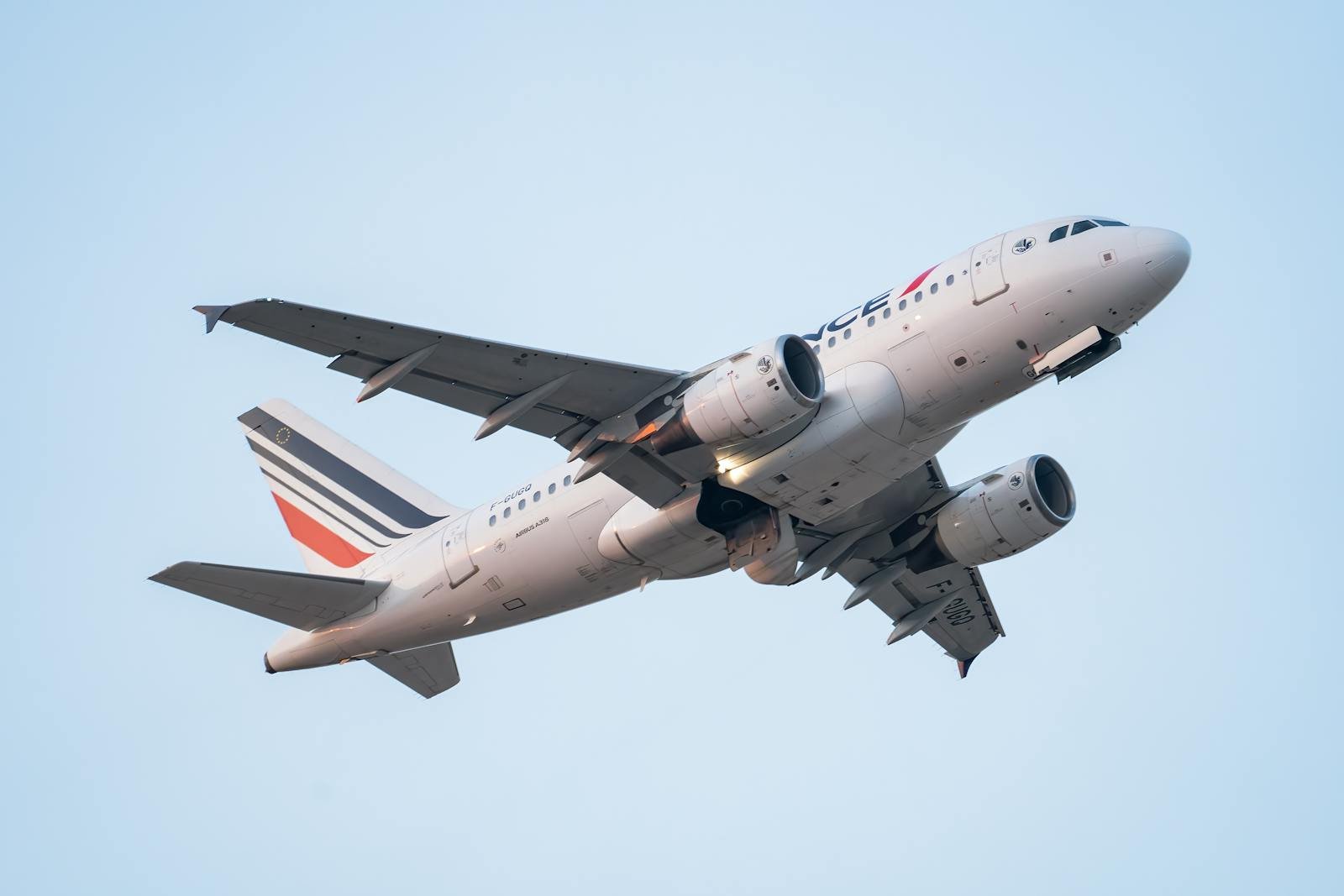
Introduction
Airline cancellations can significantly disrupt travel plans, often leaving passengers grappling with unexpected delays, rebookings, and added expenses. Such interruptions not only cause frustration but can also spawn ripple effects that affect business commitments, family gatherings, and much-needed vacations. In a world where travel has become increasingly integral to both personal and professional lives, the challenge of navigating uncertainties surrounding airline schedules is more prevalent than ever, especially during peak travel seasons or unpredictable circumstances, such as severe weather events or global disruptions.
In this context, the importance of selecting a reliable airline cannot be overstated. Travelers are increasingly seeking airlines that demonstrate a robust track record for minimal cancellations and effective customer service. This is particularly true when planning trips during busy holiday periods, where the likelihood of operational challenges multiplies. Many passengers may not realize that some airlines consistently outperform their peers in maintaining flight schedules and accommodating passenger needs when disruptions occur.
As we delve into the specifics of airlines with commendable operational reliability, it is crucial to consider various factors, such as their reputation, customer feedback, and performance metrics. These aspects not only contribute to fewer cancellations but also enhance the overall travel experience. By focusing on airlines known for their efficient handling of unforeseen circumstances, travelers are better positioned to ensure that their plans unfold smoothly, irrespective of the challenges that may arise.
In the sections that follow, we will address the top five airlines recognized for their exemplary service and operational integrity, enabling travelers to make informed choices while planning their journeys.
Understanding Airline Cancellations
Airline cancellations can significantly disrupt travel plans and lead to unforeseen challenges for passengers. Various reasons contribute to these cancellations, which can be categorized into operational issues, adverse weather conditions, and economic factors. Understanding these aspects is crucial for travelers as they can help mitigate travel inconveniences.
Operational issues form a substantial part of airline cancellations. Factors such as mechanical failures, staffing shortages, and logistical complications in flight scheduling often lead to these disruptions. Airlines must adhere to strict safety regulations, which can sometimes necessitate the grounding of aircraft until repairs are completed or additional crew is sourced. The complex nature of airline operations means that a single issue can cascade, affecting multiple flights throughout the day.
Weather is another critical factor that impacts airline schedules. Severe weather conditions, including storms, heavy rainfall, and snow, can create hazardous flying situations, compounding delays and leading to cancellations. Airlines are often forced to prioritize passenger safety, and as such, they may cancel or reroute flights well in advance of predicted weather events, leaving many passengers scrambling to make alternative travel arrangements.
Economic factors also play a significant role in airline cancellations. Fluctuations in fuel prices, changes in demand, and economic downturns can lead airlines to adjust their schedules, including canceling less profitable routes. The financial health of airlines can influence their operational stability, with some carriers more susceptible to cancellations during challenging economic periods.
Understanding these multifaceted reasons behind airline cancellations can enable travelers to adopt more proactive strategies. By staying informed about potential disruptions and airline performance trends, consumers can make better choices for their travel plans while minimizing the likelihood of cancellations affecting their journeys.
Factors to Consider When Choosing an Airline
When selecting an airline for your travel needs, it is essential to evaluate several key factors that contribute to the reliability of the carrier. One of the most critical aspects is on-time performance. Airlines that consistently arrive and depart on schedule are less likely to interrupt your travel plans. You can assess an airline’s punctuality by reviewing annual statistics published by aviation regulatory bodies or by checking third-party review sites that provide real-time data.
Another vital consideration is customer service ratings. Traveling can be stressful, and the quality of service provided by an airline can significantly impact your experience. Researching feedback from previous passengers can offer insights into the airline’s responsiveness to issues such as delays, cancellations, and lost luggage. Airlines that prioritize customer satisfaction often rank higher in service ratings, which can indicate a lower likelihood of plan disruptions.
Cancellation policies also play a crucial role in choosing an airline. Understanding how a carrier handles cancellations, whether due to weather or operational issues, can alert you to the risks involved. Some airlines offer flexible rebooking options and allow hassle-free changes, while others may impose strict penalties. Evaluating these policies in advance can help you make an informed decision and reduce stress during your travels.
Lastly, consider the overall reputation of an airline. Research and read reviews from multiple sources to ensure a holistic view of the carrier. This includes aspects such as flight frequency, destination coverage, and even in-flight amenities. By assessing these factors, you can choose an airline that aligns with your travel expectations, ensuring a smoother journey.
Delta Air Lines: A Leader in Reliability
Delta Air Lines has established itself as a top choice among travelers who prioritize reliability and low cancellation rates. According to recent statistics, Delta boasts one of the lowest cancellation rates in the industry, with a mere 0.5% of flights canceled in the past year. This impressive figure highlights the airline’s commitment to maintaining a dependable service, particularly during challenging travel seasons.
In addition to their robust operational statistics, customer reviews frequently praise Delta for their consistency and reliability. Many travelers appreciate the airline’s efficient handling of weather-related disruptions and their proactive approach to minimizing cancellations. For instance, Delta has invested in advanced weather tracking technology, enabling their operations team to make informed decisions regarding potential delays or cancellations. This forward-thinking strategy ensures that customers remain informed and reassured about their travel plans.
Delta Air Lines has also formed strategic partnerships with various airports and transportation services, aiming to streamline the travel experience for customers. These collaborations enhance operational efficiency and accessibility. Recent initiatives, including upgrading their fleet with newer aircraft and implementing improved scheduling algorithms, further contribute to reduced cancellation rates. Moreover, Delta has implemented comprehensive training programs for their employees, emphasizing customer service alongside operational excellence. This focus on staff training results in a more responsive and customer-centric approach, which is essential in minimizing disruptions.
Overall, Delta Air Lines stands out not only for their low cancellation rates but also for their commitment to improving the passenger experience. Their combination of innovative operational strategies, customer-centric policies, and strong partnerships reinforces their reputation as a reliable airline, making them an ideal choice for travelers wary of potential cancellations.
Southwest Airlines: A Reliable Choice for Travelers
Southwest Airlines has earned a commendable reputation for its reliability, making it one of the top choices for travelers looking to avoid plan cancellations. The airline is particularly recognized for its flexible cancellation and flight change policies, which allow passengers peace of mind when booking their travel. Unlike many carriers that impose hefty fees for changes, Southwest provides the ability to modify itineraries without financial penalties, thus fostering customer trust and satisfaction.
In terms of customer satisfaction, Southwest consistently ranks highly in industry surveys. Their commitment to transparency and open communication plays a crucial role in maintaining public confidence. Passengers often commend the airline for its friendly staff and efficient boarding process, which collectively contribute to a smoother travel experience. Research indicates that customers not only appreciate the low fares but also value the added convenience that comes with Southwest’s uncomplicated policies.
To further minimize disruptions, Southwest Airlines employs a strategic operational model that emphasizes point-to-point transit over the more traditional hub-and-spoke system utilized by many airlines. This approach allows the carrier to maintain a more dynamic and flexible flight schedule, ultimately reducing the likelihood of cancellations. For instance, on a busy travel weekend, a traveler reported that despite adverse weather conditions affecting other airlines, their Southwest flight departed on time, illustrating the airline’s resilience and operational efficiency.
Moreover, Southwest Airlines utilizes a culture of proactive problem-solving. Should any unexpected disruptions arise, their team is trained to communicate promptly with customers and provide alternative solutions. This ability to navigate challenges while keeping passengers informed underscores their reliability as an airline. Overall, Southwest Airlines exemplifies a traveler-friendly model, greatly enhancing the likelihood that plans will proceed as scheduled.
Airline #3: Alaska Airlines
Alaska Airlines has built a reputation as a dependable airline, consistently emphasizing reliability and customer service. Known for its commitment to getting passengers to their destinations on time, Alaska Airlines boasts impressive statistics concerning its on-time performance and low cancellation rates. According to recent data, Alaska Airlines ranks among the top carriers in the United States for punctuality, with over 80% of its flights arriving on time. This reliability is a significant factor for travelers who seek to minimize disruptions to their itineraries.
Moreover, the airline has demonstrated a remarkable resilience during challenging times, often adapting and adjusting its schedule to reduce cancellations. The figures show that Alaska Airlines has maintained a cancellation rate considerably lower than the industry average, a statistic that is crucial for passengers who value predictability in their travel plans. The ability of Alaska Airlines to minimize the number of flight cancellations sets it apart from many competitors, giving it a competitive edge in the aviation market.
Additionally, the focus on customer service further enhances the travel experience. Alaska Airlines is known for its friendly and helpful staff, who are trained to address passenger concerns swiftly and effectively. Passengers often report positive experiences when encountered with unexpected changes or challenges, as the airline’s employees readily assist in finding alternate solutions. This level of customer care contributes significantly to Alaska Airlines’ reputation as a reliable option for leisure and business travelers alike, showcasing their dedication to creating a seamless travel experience.
Choosing Alaska Airlines not only ensures a higher probability of on-time flights but also a commitment to exceptional service, making it a top choice for those prioritizing their travel plans.
Airline #4: Hawaiian Airlines
Hawaiian Airlines stands out as a reliable choice for travelers seeking assurance in their travel plans. Known for its exceptional service, this airline maintains one of the lowest cancellation rates in the industry, particularly impressive in the context of inter-island travel and international flights. With a commitment to providing a seamless travel experience, Hawaiian Airlines has earned the trust of both local and international passengers.
The airline’s operations are primarily focused on enhancing connectivity within the Hawaiian Islands, enabling efficient travel between the diverse landscapes of Oahu, Maui, Kauai, and the Big Island. Hawaiian Airlines uniquely positions itself by offering a range of flights that cater to both residents and visitors. This focus on inter-island travel ensures that schedules are meticulously maintained, contributing to their commendable reliability.
Moreover, Hawaiian Airlines extends its operational ethos to international routes, including flights to key destinations on the mainland U.S. and in the Pacific region. The airline prides itself on delivering consistent service excellence while adopting measures that minimize cancellations. Their fleet is efficiently managed, and staff are well-trained to ensure a smooth travel experience, which also plays a significant role in their reliability metrics.
Additionally, the airline provides a unique inflight experience that reflects the rich culture of Hawaii, from its warm hospitality to local culinary delights. These aspects not only set Hawaiian Airlines apart from its competitors but also enhance customer loyalty. Thus, travelers can look forward to dependable travel plans with Hawaiian Airlines, backed by their exemplary track record. Each flight is not just about reaching a destination; it is an invitation to experience the aloha spirit, fostering an environment of trust and satisfaction for discerning travelers.
JetBlue Airways: Commitment to Customer Satisfaction
JetBlue Airways has established itself as a notable player in the airline industry, recognized for its dedication to customer satisfaction and impressive on-time performance. A core aspect of their operational philosophy is to minimize flight cancellations, which is vital for maintaining traveler confidence and loyalty. The airline’s commitment to planning and logistics ensures that routes are serviced efficiently, reducing the probability of last-minute cancellations due to operational challenges.
The airline has implemented various policies aimed at safeguarding passengers during unforeseen disruptions. For instance, JetBlue prioritizes direct communication with customers by providing timely updates about their flight status. This transparent approach allows passengers to make informed decisions, alleviating the stress often associated with unexpected changes in travel plans. Additionally, the airline strives to maintain a high level of staffing to manage its operations effectively, further mitigating the risks that can lead to cancellations.
JetBlue’s competitive edge is also apparent in its willingness to accommodate travelers in times of crisis. For example, if a flight is delayed, the airline often provides flexible rebooking options and has been known to offer travel credits for affected passengers. This policy reflects their understanding of the importance of customer loyalty and the significance of maintaining goodwill in the service industry.
Furthermore, JetBlue Airways focuses on a well-maintained fleet, adhering to stringent maintenance schedules which reduce the risk of aircraft issues that could potentially lead to disruptions. The airline’s commitment to operational excellence allows it to stand out in an industry where unpredictability can often overshadow travel plans. As such, passengers can trust JetBlue to prioritize their travel experience and minimize the likelihood of cancellations, making it a reliable choice for travelers seeking peace of mind.
Tips for Booking with Peace of Mind
When it comes to booking flights, ensuring your travel plans remain intact is a top priority. To minimize the risk of cancellations, consider implementing several practical strategies. One effective approach is to select flexible ticket options. Many airlines now offer fare classes that allow for changes or cancellations without hefty fees, which can provide a critical safety net should unexpected circumstances arise. By prioritizing flexibility, travelers can better navigate any route disruptions.
Additionally, it is advisable to check airline reliability reports before making a reservation. Several reputable sources provide updated ratings on on-time performance and cancellation statistics for various airlines. This information can guide your choice, as airlines with a strong track record of reliability significantly reduce the chances of plan disruptions. Look for airlines that consistently manage to meet their scheduled flights without frequent cancellations.
Staying informed about potential travel restrictions is another crucial tip. This is particularly relevant in today’s evolving travel climate, where external factors such as health regulations or adverse weather conditions can impact flight operations. Monitoring local news, airline announcements, and governmental advisories will allow travelers to stay ahead of any issues that might affect their journey. Furthermore, utilizing mobile apps from airlines or travel booking platforms can provide real-time updates regarding flight statuses and changes.
Lastly, consider purchasing travel insurance. This option adds an extra layer of protection, allowing you to recoup costs associated with cancellations, delays, or unexpected changes to your itinerary. While it may seem like an additional expense upfront, travel insurance can offer peace of mind, ensuring financial protection in the event that plans change unexpectedly. By adopting these strategies, travelers can enjoy their journeys with greater confidence, minimizing the risk of cancellations and unexpected disruptions.
Conclusion
Choosing a reliable airline is a critical factor in ensuring a smooth travel experience. The five airlines discussed in this blog post have consistently demonstrated their commitment to customer service and reliability, making them ideal choices for travelers who wish to avoid disruptions. These airlines have implemented strategies to minimize cancellations and delays, which can significantly affect travel plans. By prioritizing operational efficiency and maintaining effective communication with passengers, they can provide a more dependable journey.
As travelers plan their future trips, considering these airlines can help alleviate the stress associated with potential travel interruptions. Whether one is flying for business or leisure, selecting an airline known for its reliability can lead to a more pleasant overall experience. The highlighted airlines have established reputations for maintaining schedules and taking proactive approaches to handle unforeseen circumstances, which is crucial in today’s fast-paced travel environment.
We encourage readers to share their thoughts on these airlines or any personal experiences they may have had while flying with them in the comments section below. It is essential to foster a dialogue around airline experiences, as personal anecdotes can often provide invaluable insights for fellow travelers. Ultimately, making informed choices about which airlines to fly with can enhance one’s travel experience and minimize the chances of encountering unforeseen disruptions.








